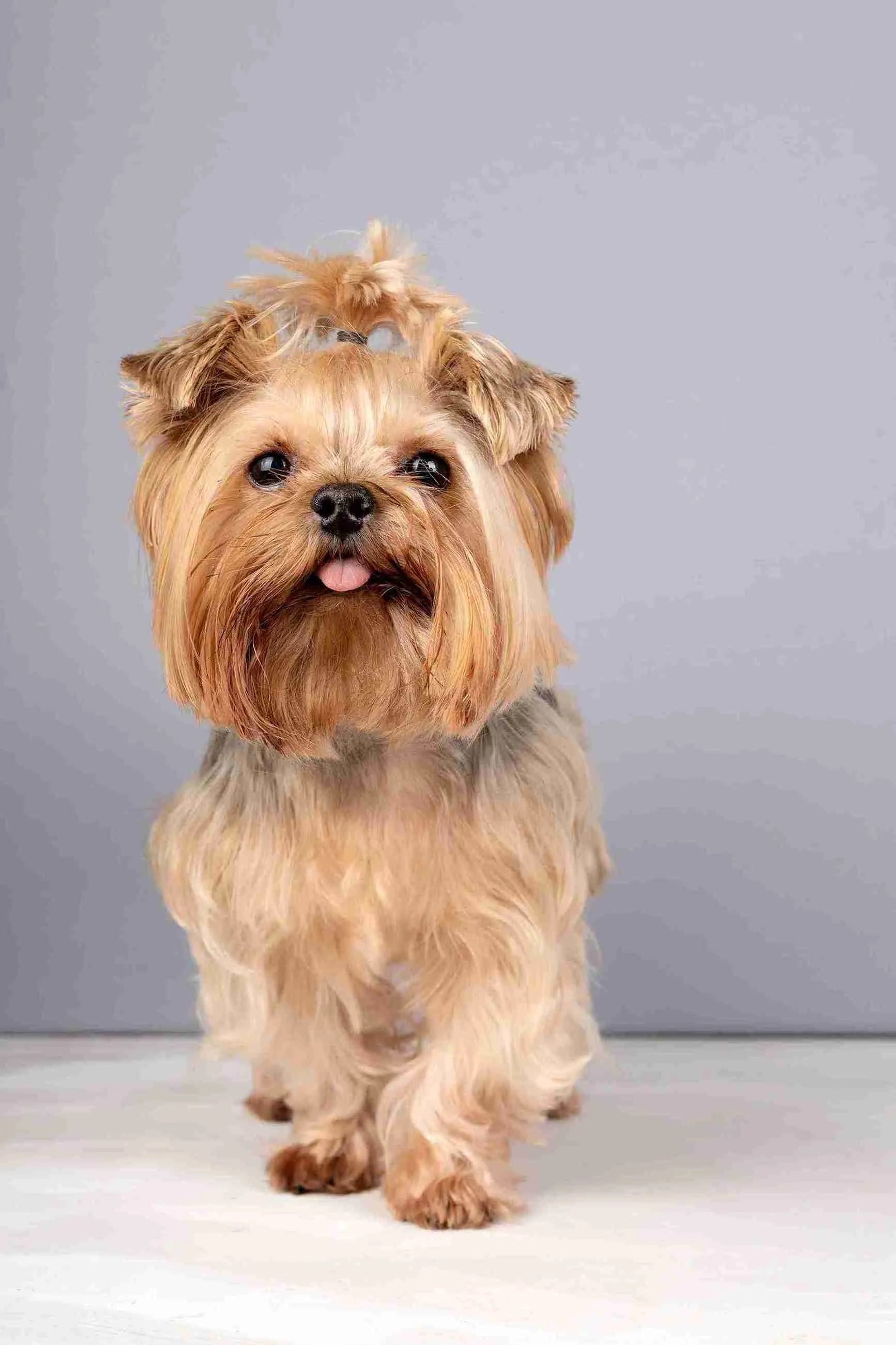Yorkshire Terrier
Yorkshire Terrier
America’s Feisty and Portable Lap Dog
1. Introduction to the Breed
The Yorkshire Terrier, affectionately known as the “Yorkie,” holds the #12 spot in the 2024 American Kennel Club (AKC) rankings, celebrated for its feisty personality and portable size. With their silky, flowing coats and confident demeanor, Yorkies are a favorite among small-dog lovers, thriving in urban apartments and suburban homes alike. Their bold spirit and glamorous appearance make them ideal for owners seeking a compact companion with a larger-than-life character, perfect for both cuddling and strutting.
2. History of the Breed
Originating in Yorkshire, England, during the 19th century, Yorkshire Terriers were bred by working-class weavers to control vermin in textile mills. Descended from breeds like the Waterside Terrier and Skye Terrier, Yorkies were refined into a smaller, elegant companion by the late 1800s. Recognized by the AKC in 1885, they gained U.S. popularity as fashionable lap dogs among the elite, with their luxurious coats showcased in dog shows. Today, Yorkies are beloved for their spunk and loyalty, often seen as pampered pets in media and celebrity circles.
3. Physical Characteristics
- Typical Size and Weight: Yorkies are toy-sized, standing 7–8 inches tall at the shoulder and weighing 4–7 pounds, with some slightly larger depending on breeding.
- Coat and Color: Their long, silky, hypoallergenic coat is typically blue-and-tan or black-and-tan, growing continuously like human hair. Show Yorkies often have floor-length coats, while pet cuts are shorter for manageability.
- Distinctive Features: Yorkies have a small, refined head with dark, sparkling eyes, a short muzzle, and small, V-shaped ears. Their compact, well-proportioned body exudes elegance and confidence.
4. Personality Traits
Yorkshire Terriers are feisty, affectionate, and bold, with a spirited personality that defies their tiny size. They form strong bonds with their owners, often acting protective despite their stature, and enjoy being the center of attention. Yorkies are alert and vocal, barking at unfamiliar sounds or visitors, which makes them excellent watchdogs. They get along with older children and familiar pets when socialized but may be wary of strangers or larger dogs, requiring careful introductions. Their lively, confident nature suits owners who appreciate a dog with sass and charm.
5. Care Requirements
- Exercise Needs: Yorkies need 30–45 minutes of daily exercise, such as short walks, indoor play, or fetch in a secure yard. Mental stimulation through training or puzzle games keeps their sharp minds engaged.
- Grooming Needs: Their coat demands daily brushing to prevent matting, with professional grooming every 4–6 weeks for show cuts or pet trims. Regular ear cleaning, nail trimming, and dental care are crucial, as Yorkies are prone to dental issues.
- Dietary Considerations: A high-quality, small-breed diet with balanced nutrients supports their energy and coat health. Portion control is essential to prevent obesity, and foods with omega fatty acids reduce skin sensitivities. Avoid table scraps to maintain dental and digestive health.
6. Health and Lifespan
Yorkshire Terriers have an average lifespan of 11–15 years. Common health issues include patellar luxation, tracheal collapse, dental disease, and hypoglycemia, particularly in puppies. Their small size makes them prone to injuries from falls, so safe handling is key. Regular vet checkups, dental cleanings, and genetic screenings mitigate risks. Owners should monitor for coughing or breathing issues, especially in humid conditions, and maintain a consistent diet to stabilize blood sugar.
7. Training and Socialization
Yorkies are intelligent but can be stubborn, requiring patient, positive reinforcement training with treats or praise. Short, engaging sessions prevent boredom, as they have short attention spans. Early socialization is vital to reduce excessive barking or shyness, exposing them to people, pets, and new environments. Teaching commands like “quiet” and “stay” helps manage their vocal tendencies and territorial instincts. Consistent training and socialization ensure a well-mannered Yorkie, preventing “small dog syndrome.”
8. Ideal Home Environment
Yorkshire Terriers thrive in apartments or small homes, making them ideal for urban dwellers, seniors, or singles. Their portable size suits travel, and they enjoy cozy indoor spaces with soft bedding. Families with older children are a good match, but supervision is needed with younger kids to avoid rough handling. A secure, fenced area is beneficial for play, as Yorkies can be escape artists. Owners should provide a stimulating environment and be prepared for their vocal, attention-seeking nature.
9. What’s the Best Toy for My Yorkshire Terrier?
Yorkies love toys that match their feisty, playful nature and small size. Small, durable chew toys, like the KONG Puppy Toy or Nylabone Teenie Chew (made of soft rubber or nylon), satisfy their chewing instincts and provide 15–20 minutes of engagement, often with treats for added fun. Plush toys with squeakers, such as the ZippyPaws Skinny Peltz, appeal to their prey drive, encouraging light tossing or carrying during short indoor play sessions. Interactive puzzle toys, like the Outward Hound Hide-A-Squirrel, stimulate their clever minds, keeping them occupied for 10–15 minutes. Small fetch balls, such as the Chuckit! Indoor Ball, are perfect for gentle chasing in confined spaces. Avoid oversized or hard toys that could harm their delicate jaws, and rotate toys weekly to maintain interest, pairing with training for engagement.
10. Adoption and Breeder Tips
Choose breeders affiliated with the Yorkshire Terrier Club of America, ensuring health clearances for patellar luxation, eyes, and liver conditions like portosystemic shunt. Visit the breeder to assess puppy health, meet parents for temperament insights, and confirm ethical practices, including socialization and clean facilities. Rescues like Yorkie-specific organizations or local shelters offer adoptable Yorkies, often with known histories. Avoid puppy mills, as Yorkies’ popularity can lead to overbreeding. Ask about genetic testing, coat care, and socialization practices to ensure a healthy, well-adjusted dog suited to your lifestyle.






0 comments